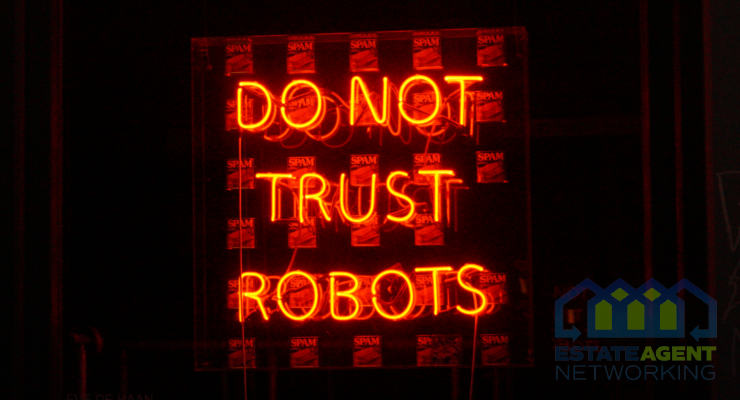Securing Real Estate Assets in the Digital Age: The Role of AI SIEM and CISO Services
In the rapidly evolving world of real estate, digital transformation has revolutionized how assets are managed, marketed, and secured. However, as the sector increasingly relies on digital technology, it becomes more vulnerable to cyber-attacks. This is where advanced cybersecurity solutions like AI SIEM (Security Information and Event Management) and expert CISO (Chief Information Security Officer) services step in, offering robust protection against various digital threats. For instance, enhancing real estate security with AI SIEM, such as Blacklight AI; a leading AI security software at the forefront of the cybersecurity revolution, provides next-gen SIEM solutions that are increasingly crucial in safeguarding the real estate sector.
Integrating AI-Powered Security Into the Real Estate Domain
From sprawling commercial properties to high-value residential locations, real estate assets are prime targets for cybercriminals. Incorporating advanced algorithms and machine learning capabilities to monitor, detect, and respond to threats in real time, AI SIEM secures the cyber environment and integrates with physical security systems, offering a comprehensive safeguarding solution. As the digital footprint of real estate assets grows, AI-powered security remains an indispensable tool in managing and mitigating potential cyber risks.
The Pivotal Role of CISO Services in Real Estate’s Digital Transformation
The cyber threat landscape is complex and ever-changing, requiring specialized knowledge and experience. This is where CISO as a service for property management becomes invaluable. A CISO plays a critical role in developing and implementing a comprehensive cybersecurity strategy tailored to protect digital and physical assets in real estate. Whether in-house or outsourced, CISO services bridge the gap between traditional real estate operations and the need for advanced digital security, ensuring that firms are protected against current threats and prepared for future challenges.
As real estate firms adapt to the digital era, the role of the CISO becomes ever more critical. A CISO provides leadership in establishing a security-conscious culture and oversees adopting security best practices. CISOs ensure that employees are trained to understand cybersecurity’s importance and establish protocols for incident response and recovery. Continuous risk assessments under their guidance allow real estate businesses to evolve their security measures and maintain resilience against cyber threats. This is a critical component for any real estate firm to possess. It ensures that their employees fully understand the risks that cyber threats pose to their industry and how they can be combatted safely but, more importantly, effectively.
Advanced Threats Targeting the Real Estate Sector
The real estate sector faces various cyber threats, from phishing scams targeting financial transactions to sophisticated ransomware attacks that can lock out entire property management systems. These threats not only disrupt operations but can also have a significant financial impact and damage the reputation of businesses. The deployment of next-gen SIEM solutions by Blacklight AI, coupled with expert analysis by CISO services, enables real estate businesses to identify and neutralize such threats before they cause harm, safeguarding data, and assets.
With the real estate sector embracing technology for virtual tours, IoT-based property management, and online transactions, the exposure to cyber threats increases exponentially. The sophistication of these threats calls for an equally sophisticated defense mechanism involving encryption, secure authentication protocols, and continuous network surveillance. Real estate companies must recognize the importance of investing in advanced security measures, as the cost of a breach can far exceed the cost of prevention.
Advancing Real Estate Cybersecurity with AI-Driven Solutions
In real estate cybersecurity, the deployment of AI-driven security solutions marks a significant advancement in the sector’s defense mechanisms. These intelligent systems are at the forefront of identifying and neutralizing cyber threats, utilizing sophisticated algorithms to analyze data patterns and detect anomalies indicative of potential security breaches. The strength of AI in cybersecurity lies in its ability to provide continuous, automated monitoring and response capabilities, significantly reducing the window of opportunity for cybercriminals to exploit vulnerabilities. By leveraging AI’s capabilities, real estate firms can implement a more proactive and predictive cybersecurity posture, focusing on preemptive threat identification and automated defenses. This approach minimizes reliance on manual intervention, ensuring that real estate assets are safeguarded efficiently and effectively against the ever-evolving landscape of cyber threats. As we harness the full potential of AI in cybersecurity, it becomes a critical asset in the digital protection arsenal, offering scalable, intelligent solutions that adapt to new challenges and protect valuable real estate assets.
Evolving With the Threat Landscape: The Future of Real Estate Cybersecurity
As cybercriminals become more sophisticated, so must the solutions that protect against them. The future of real estate cybersecurity lies in the continuous advancement of AI SIEM technologies and the strategic oversight provided by CISO services. By staying ahead of trends and adapting to new threats, the real estate sector can defend against cyber-attacks. It can also leverage cybersecurity as a competitive advantage, reassuring clients, and investors of the security of their assets.
Integrating cutting-edge solutions like Blacklight AI’s next-gen SIEM technology, along with expert CISO services, is not just an option—it’s a necessity to ensure the security of real estate assets in the digital age. These advanced cybersecurity measures provide the foundation for a robust security posture protecting against current and future digital threats and ensuring the ongoing success of real estate businesses in a digitized world. Of course, it never hurts to take an online course about these platforms to get the most out of them. With the plethora of online training programs out there (i.e. cybersecurity course, CompTIA certifcation program, etc.), it shouldn’t be a challenge finding one that fits your needs.









